#or brands using digital channels such as search engines
Text

#Digital marketing is the practice of promoting products#services#or brands using digital channels such as search engines#social media#email#mobile apps#and websites. With the proliferation of internet-enabled devices and the increasing use of digital media#digital marketing has become an best digital marketing agency Noida essential part of any organization's marketing strategy.
0 notes
Text

Digital marketing channels are platforms you can use to reach your target audiences online. They might include social media, search engines or websites. Digital marketing channels give you the opportunity to sell products, build brand awareness and position yourself within a given industry. #digitalmarketing #business #digitalmarketingtips #MEDIAHEIGHTS #digitalmarketingcompany #searchengineoptimization #content #instagrammarketing #advertisingagency #web #MEDIAHEIGHTSPRCOM #best #public #relation #agency #in #chandigarh #mohali #punjab #north #india #buildingrelationships #globally #customer #internetbanding — at media heights #smo #branding #facebook #twitter #marketingonline #brand #searchengineoptimization #internetmarketing #follow #digitalagency #marketingagency #motivation #digitalmarketingtips #onlinebusiness #websitedesign #marketingonline #brand #searchengineoptimization #content #instagrammarketing #advertisingagency #web #technology #onlinebranding #branding360degree #SEO #SEObrandingagency #websiteranking #websitetrafic #Digitalmarketing #mediaheights #OnlineAdvertising #instagrammarketing #advertisingagency #web #marketingonline #brand
#Digital marketing channels are platforms you can use to reach your target audiences online. They might include social media#search engines or websites. Digital marketing channels give you the opportunity to sell products#build brand awareness and position yourself within a given industry.#digitalmarketing#business#digitalmarketingtips#MEDIAHEIGHTS#digitalmarketingcompany#searchengineoptimization#content#instagrammarketing#advertisingagency#web#MEDIAHEIGHTSPRCOM#best#public#relation#agency#in#chandigarh#mohali#punjab#north#india#buildingrelationships#globally#customer#internetbanding — at media heights#smo#branding
1 note
·
View note
Text
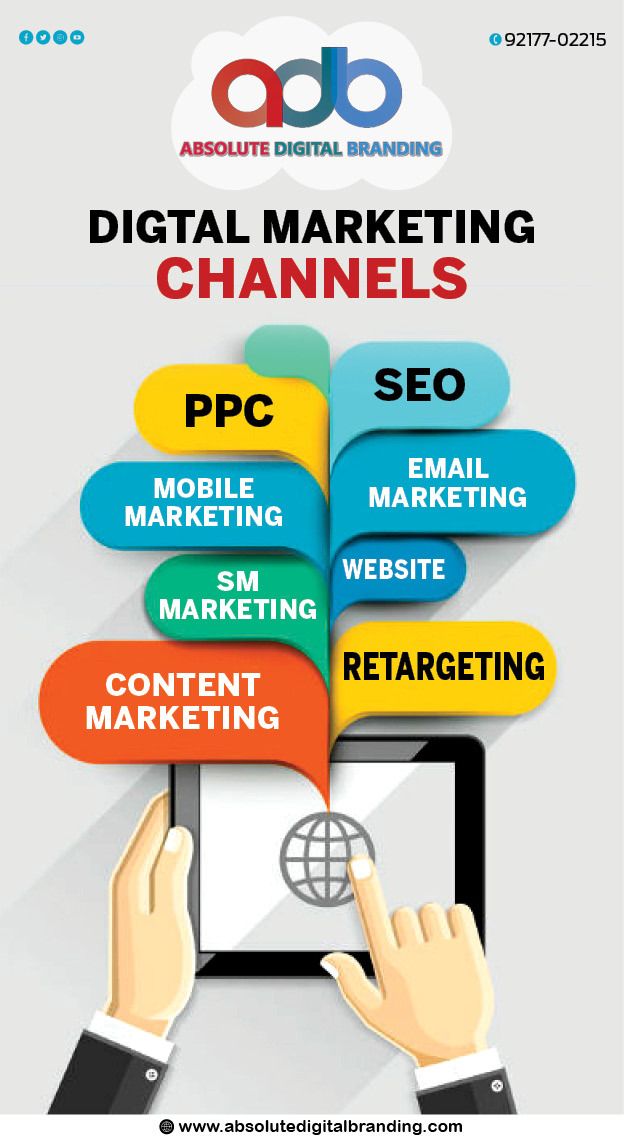
Digital marketing channels are platforms you can use to reach your target audiences online. They might include social media, search engines or websites. Digital marketing channels give you the opportunity to sell products, build brand awareness and position yourself within a given industry.
#digitalmarketingchannels #Marktingstrategy #SEObrandingagency #SEO #PPC #SMO #SMM #SeoCompany #digitalmarketingcompany #socialmediamarketingcompany #absolutedigitalbranding #searchengineoptimization #advertisingagencyinmohali #facebook #twitter #marketingonline #internetmarketing #follow #digitalagency #marketingagency #motivation #digitalmarketingtips #onlinebusiness #websitedesign #marketingonline #brand #ABSOLUTEDIGITALBRANDING #BEST #PUBLIC #RELATION #AGENCY #IN #CHANDIGARH #MOHALI #PUNJAB #NORTH #INDIA #onlinebranding #branding360degree #SEObrandingagency #websiteranking #websitetrafic #Digitalmarketing #OnlineAdvertising #instagrammarketing #web #technology #marketingonline #content #instagrammarketing #advertisingagency #web #buildingrelationships #globally #customer #internetbranding-at Absolute digital Branding & Public relations.
#Digital marketing channels are platforms you can use to reach your target audiences online. They might include social media#search engines or websites. Digital marketing channels give you the opportunity to sell products#build brand awareness and position yourself within a given industry.#digitalmarketingchannels#Marktingstrategy#SEObrandingagency#SEO#PPC#SMO#SMM#SeoCompany#digitalmarketingcompany#socialmediamarketingcompany#absolutedigitalbranding#searchengineoptimization#advertisingagencyinmohali#facebook#twitter#marketingonline#internetmarketing#follow#digitalagency#marketingagency#motivation#digitalmarketingtips#onlinebusiness#websitedesign#brand#ABSOLUTEDIGITALBRANDING#BEST
1 note
·
View note
Text
https://www.digitalcomputerclasses.com/courses/digital-marketing/
#Digital marketing refers to the use of digital internet#To promote products or services and reach a target costumers. Internet marketing involves various components#Including search engine optimization (SEO)#Pay-per-click advertising (PPC)#Social media marketing#email marketing#Content marketing#And influencer marketing. Digital marketing has become crucial for businesses of all sizes#As more consumers rely on the internet to research and purchase products. By effectively utilizing digital channels#Businesses can increase brand awareness#Reach their target audience#And drive more revenue And reach#All type of business have a need of digital marketing because this is the best way to reach everywhere easily and low costly#Future of every business is digital marketing.#Importance of Digital Marketing Course#Digital marketing course in Jaipur#First#Digital marketing is rapidly growing in every field#And it is becoming increasingly important for businesses to have a strong online presence. By taking a digital marketing course#Individuals can gain the skills and knowledge needed to create effective digital marketing campaigns.#Second#A digital marketing training can help individuals stay up-to-date with the latest trends and technologies in the industry. Digital marketin#And staying current with the latest strategies and tools is crucial for success#Digital marketing helps to promote oven business.#Third#A digital marketing course can provide individuals with the credentials and certification they need to stand out in a competitive job marke#And having a certification from a reputable course can help individuals demonstrate their expertise and competency#Also anyone can run our oven coaching centers.#Overall#a digital marketing course can provide individuals with the skills
0 notes
Text
New Business Marketing Tips And Tricks for Success
Starting a new business can be an exciting endeavor, but it also comes with its fair share of challenges, especially in the competitive landscape of today's market. Effective marketing is crucial for the success of any new venture. Here are four essential marketing tips and tricks to help your new business thrive.
Define Your Target Audience: Before diving into marketing efforts, it's essential to identify and understand your target audience. Define your ideal customer persona by considering demographics, interests, pain points, and buying behaviors. Conduct market research to gather valuable insights that will guide your marketing strategies. Tailoring your messages and campaigns to resonate with your target audience will significantly increase your chances of success.
Once you have a clear picture of your audience, choose the most suitable marketing channels to reach them effectively. Social media, email marketing, content marketing, and pay-per-click advertising are just a few options to consider. Your choice of channels should align with where your audience spends their time online.

Create Compelling Content: Content marketing is a powerful tool for new businesses to establish their brand and build credibility. Develop high-quality, informative, and engaging content that addresses the needs and interests of your target audience. This content can take various forms, including blog posts, videos, infographics, and podcasts.
Consistency is key when it comes to content creation. Develop a content calendar to plan and schedule regular updates. Providing valuable content not only helps you connect with your audience but also boosts your search engine rankings, making it easier for potential customers to find you.

Leverage Social Media: Social media platforms have become indispensable for marketing in today's digital age. Create profiles on relevant social media platforms and engage with your audience regularly. Share your content, interact with followers, and participate in industry-related discussions.
Paid advertising on social media can also be a cost-effective way to reach a broader audience. Platforms like Facebook, Instagram, and LinkedIn offer targeting options that allow you to reach users who match your ideal customer profile.

Monitor and Adapt: Marketing is an ever-evolving field, and what works today may not work tomorrow. To stay ahead of the curve, regularly monitor the performance of your marketing efforts. Analyze key metrics such as website traffic, conversion rates, and return on investment (ROI). Use tools like Google Analytics and social media insights to gather data and insights.
Based on your findings, be prepared to adapt your strategies and tactics. If a particular marketing channel isn't delivering the expected results, reallocate your resources to more promising avenues. Stay up-to-date with industry trends and keep an eye on your competitors to ensure your marketing efforts remain relevant and competitive.
In conclusion, effective marketing is essential for the success of any new business. By defining your target audience, creating compelling content, leveraging social media, and continuously monitoring and adapting your strategies, you can position your new business for growth and long-term success in a competitive market. Remember that success may not come overnight, but with persistence and the right marketing approach, your new business can thrive.

#business#digitalbusiness#digitalmarketing#seo#market analysis#data analytics#marketing#management#sales#learn digital marketing#Digital marketing course#seo expert#business success#businessgrowth
80 notes
·
View notes
Text
The Basics of Digital Marketing For Beginners
Tips for Beginners
As a digital marketing beginner, you don’t have to feel intimidated or lost. Here are some tips to make digital marketing for beginners easier to grasp and get going.
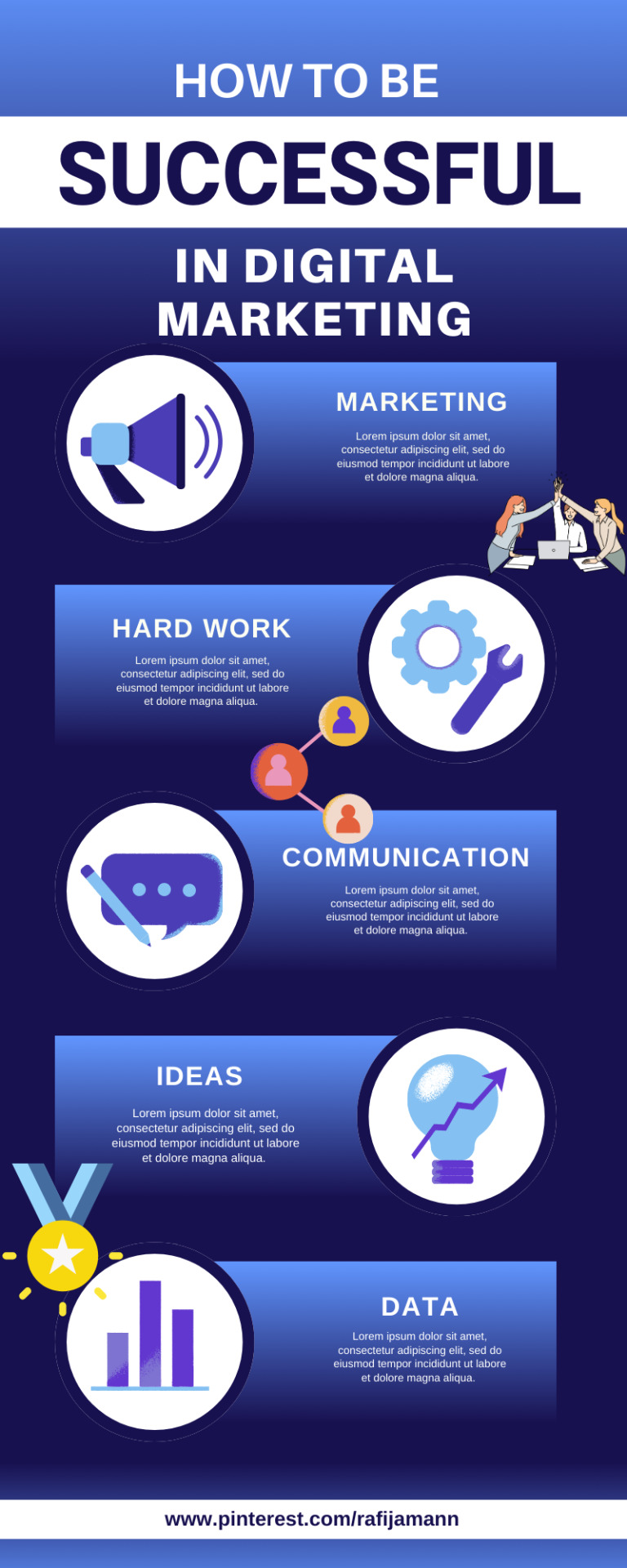
Know everything you can about brand awareness
Building brand awareness is an essential element to your marketing strategy and your success. Start out by knowing everything you can about it and its benefits.
Essentially, brand awareness is the recognition and familiarization by others of your brand, product, or service. To boost such awareness, you will need to help consumers learn more about your business, the products or services you offer, and what makes you stand out from your competitors.
There are several ways to build brand awareness. Consistency in how you present your brand across channels and platforms will be key. Consumers will be able to look at a blog or social media post and instantly know it’s yours if you do it right.
SEO is everywhere
Search engine optimization (SEO) is everywhere today! Once you acknowledge this, it’s time to get in the game by understanding how SEO works and ways to use it to your advantage.
Sure, it can be a little intimidating at first, so start slow and easy. Identify keywords and phrases that your target audience uses to conduct searches. Incorporate these into all your content so your audience can find you more easily. From here, you’ll want to consider a link-building strategy to boost your SEO even more.
If you start feeling anxious, remember to take action one step at a time and keep learning all you can about SEO techniques and available tools. Soon you’ll be using it to increase website traffic, gain higher-quality leads, and more.
Discover the online potential of your brand
One of the most empowering moments that can occur as a digital marketer is to discover the online potential of your brand. Digital marketing is the perfect avenue for generating high-quality leads that result in more interaction with your brand and, ultimately, higher sales.
You may discover opportunities to offer webinars to customers, create courses, sponsor events, or become a thought leader in your field. The online potential of your brand is vast, and cashing in on that is possible with targeted marketing and planning.
Get to Really Know Your Customers
While you may already know everything about your product or service, it is essential to step away from that and get to really know your customers. By doing so, you can build a better marketing strategy that appeals to them and other potential customers.
Conduct your own market research by sending out surveys to existing customers and by asking for feedback. Closely study customer reviews and comments to gain a sense of what they want most. Learn all you can about who they are, what they want or need, and the type of interests they have.
Once you collect this information and start to understand your customers, develop your buyer personas. You will use these to plan your marketing strategy and the type of content to share.
Build a significant presence on social media
Consumers today spend tons of time on social media platforms. Since that is where they are, it is where you should be also. The goal is to build a significant presence on one or more platforms.
Create your social profile to match your brand and how you present yourself on your website. Now it’s time to start publishing content. Consider mixing it up a bit at times, providing informative, educational, or entertaining content to show your brand’s confidence and personality. Don’t just focus only on your products or services, but add posts that speak to your target audience’s interests and desires.
Online consumers are highly visual these days, so be sure to always include the highest quality videos and images with your posts. As you gain more followers, increase your interaction with them by responding to comments. You can even use interactive content to draw them in further.
#digital marketer#digital marketing#tips#service provider#personal blog#marketing#digital services#online marketing#online business#business#marketing strategy#marketing sales software#marketing agency#marketing digital#entrepreneur#startup#sales
20 notes
·
View notes
Text
Digital Marketing Strategy
Set Clear Goals and Objectives: The first step in creating a digital marketing strategy is to define clear goals and objectives. These goals should be specific, measurable, attainable, relevant, and time-bound (SMART). Examples include increasing website traffic, generating leads, improving brand awareness, or driving online sales.
2. Understand Your Target Audience: To effectively reach and engage your target audience, it's important to understand their demographics, interests, behaviors, and pain points. Conduct market research, analyze customer data, and create buyer personas to gain insightful information about your target audience. This will help you tailor your digital marketing efforts to resonate with them.
3. Choose the Right Digital Channels: Identify the digital channels that are most relevant to your target audience and align with your marketing goals. Common digital channels include websites, search engines, social media platforms, email marketing, content marketing, mobile apps, and online advertising. Each channel has unique characteristics and advantages, so choose the ones that best suit your business and audience.
4. Develop Content Strategy: Content is at the heart of digital marketing. Create a content strategy that focuses on delivering value to your target audience. Plan and produce high-quality content that aligns with their interests, needs, and preferences. This can include blog articles, videos, infographics, eBooks, webinars, and social media posts. Consistency and relevance are key to establishing thought leadership and building trust with your audience.
5. Optimize for Search Engines: Implement search engine optimization (SEO) strategies to improve your website's visibility in search engine results. Conduct keyword research to identify relevant search terms and optimize your website's on-page elements, such as meta tags, headings, and content. Create high-quality backlinks from reputable websites to boost your website's authority.
6. Leverage Social Media: Utilize social media platforms to connect with your audience, build brand awareness, and foster engagement. Identify the platforms where your target audience is most active and create compelling content tailored to each platform. Engage in conversations, respond to comments, and encourage user-generated content to cultivate a sense of community and brand loyalty.
7. Implement Email Marketing: Email marketing remains an effective way to nurture leads and engage with existing customers. Develop an email marketing strategy that includes personalized and segmented email campaigns. Provide valuable content, offers, and promotions to your subscribers, and automate email sequences to streamline your communication.
8. Monitor, Measure, and Adjust: Regularly monitor the performance of your digital marketing efforts using analytics tools. Track key performance indicators (KPIs) such as website traffic, conversion rates, engagement metrics, and ROI. Use the insights gained to identify areas for improvement and make data-driven adjustments to optimize your strategy.
9. Stay Updated and Evolve: The digital marketing landscape is constantly evolving. Stay updated with the latest trends, technologies, and industry best practices. Experiment with new channels and tactics to reach your audience. Continuously adapt your strategy based on market changes and feedback from your audience.
10. Evaluate and Refine: Regularly evaluate the effectiveness of your digital marketing strategy against your goals. Identify successes, challenges, and areas of improvement. Refine your strategy based on the insights gained to ensure continuous growth and success.
11. In summary, a well-rounded digital marketing strategy involves setting clear goals, understanding your audience, choosing the right channels, creating valuable content, optimizing for search engines, leveraging social media and email marketing, monitoring and measuring performance, staying updated, and evaluating and refining your approach. By following these steps, businesses can effectively harness the power of digital marketing to achieve their objectives and drive sustainable growth.
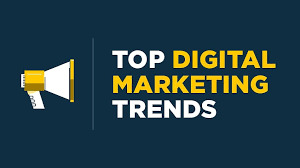
19 notes
·
View notes
Text
Website Uptime Monitoring and Management
In today’s digital age, having a website that is always available and accessible is crucial for businesses and organizations. A website downtime can lead to missed opportunities, loss of revenue, and damage to a company’s reputation. This is where website uptime monitoring and management come into play.

What is Website Uptime Monitoring?
Website uptime monitoring refers to the process of regularly checking the availability and performance of a website. It involves using specialized tools and services to monitor the website’s uptime and promptly alert the website owner or administrator if any downtime or performance issues are detected.
Website uptime monitoring services typically work by periodically sending requests to the website from multiple locations around the world. These requests simulate real user visits and check if the website responds correctly. If a problem is detected, such as the website being down or loading slowly, the monitoring service sends an alert through various communication channels like email, SMS, or push notifications.
Benefits of Website Uptime Monitoring
Implementing a robust website uptime monitoring system offers several benefits:
1. Minimizing Downtime:
Website downtime can occur due to various reasons, such as server issues, network problems, or software glitches. With uptime monitoring, you can quickly identify and address these issues before they escalate, minimizing the impact of downtime on your business.
2. Protecting Revenue and Reputation:
A website that is frequently down or slow to load can lead to frustrated visitors and potential customers abandoning your site. This directly affects your revenue and can harm your reputation. By proactively monitoring your website’s uptime, you can ensure a seamless user experience and maintain a positive brand image.
3. Tracking Performance Metrics:
Uptime monitoring services provide valuable insights into your website’s performance metrics. You can track metrics such as response time, average uptime, and downtime duration. These metrics help you identify trends, set benchmarks, and make data-driven decisions to improve your website’s performance.
4. SEO and Search Rankings:
Website downtime can negatively impact your search engine rankings. Search engines like Google prioritize websites that provide a reliable and uninterrupted user experience. Consistent uptime ensures that search engine crawlers can access and index your site properly, positively impacting your SEO efforts.
Website Uptime Management
Website uptime management goes beyond just monitoring and involves proactive steps to optimize and maintain your website’s availability. Here are some essential aspects of website uptime management:
1. Reliable Web Hosting:
Choosing a reliable web hosting provider is crucial for ensuring maximum uptime. Look for hosting providers that offer high availability, redundant infrastructure, and strong security measures. Additionally, consider the scalability of the hosting solution to accommodate your website’s growth.
2. Regular Maintenance and Updates:
Performing regular maintenance tasks, such as updating software, plugins, and security patches, is essential for keeping your website secure and stable. Outdated software can introduce vulnerabilities that could lead to downtime or compromise the integrity of your website.
3. Load Testing and Performance Optimization:
Conduct regular load testing to ensure your website can handle increased traffic without slowing down or crashing. Performance optimization techniques, such as caching, content delivery networks (CDNs), and code optimizations, can significantly improve your website’s speed and reliability.
4. Disaster Recovery and Backup Plans:
Prepare for the worst-case scenarios
by implementing robust disaster recovery and backup plans. Regularly back up your website’s data, databases, and configurations, and store them in secure off-site locations. This ensures that you can quickly restore your website in case of any unforeseen incidents.
Conclusion
Website uptime monitoring and management are vital for ensuring a reliable and high-performing online presence. By proactively monitoring your website’s uptime, you can address issues promptly, protect your revenue and reputation, and improve your overall user experience. Combine this with effective website uptime management practices to maximize the availability and stability of your website. Remember, a website that is always up and running is a key ingredient for success in today’s digital landscape.

Source
#WebManagement#ServerHosting#WebsiteMaintenance#TechSupport#CloudHosting#DataCenter#ServerManagement#WebHosting#ITInfrastructure#WebsiteSecurity#ServerAdmin#HostingSolutions#WebsitePerformance#ServerMonitoring#WebDevelopment#CloudComputing#NetworkSecurity#DomainRegistration#BackupandRecovery#Cybersecurity
22 notes
·
View notes
Text

Benefits of Digital Marketing:
Digital marketing offers a wide range of benefits for businesses and organizations of all sizes. Here are some of the key advantages:
Cost-Effective: Digital marketing is often more cost-effective than traditional marketing methods like TV or print advertising. You can reach a large audience with a smaller budget, especially when using strategies like pay-per-click (PPC) advertising and social media marketing.
Targeted Audience: With digital marketing, you can target specific demographics, interests, and behaviors of your audience. This precision allows you to reach the right people with your message, increasing the likelihood of conversions.
Measurable Results: Digital marketing provides robust analytics and reporting tools that allow you to track the performance of your campaigns in real-time. You can monitor metrics such as website traffic, click-through rates, conversion rates, and more to assess the effectiveness of your efforts.
Flexibility and Adaptability: Unlike traditional marketing, digital marketing campaigns can be quickly adjusted and optimized to respond to changing market conditions and consumer preferences. This flexibility allows you to make data-driven decisions and improve your strategies over time.
Global Reach: The internet has a global reach, allowing you to expand your market beyond geographical boundaries. You can target audiences in different countries or regions, opening up new growth opportunities.
Improved Brand Awareness: Digital marketing channels, such as social media and content marketing, can help you build and enhance your brand's visibility and reputation online. Consistent branding and engaging content can help create a strong online presence.
Personalization: Digital marketing allows for personalized marketing messages and experiences. You can tailor your content and offers to individual customers based on their preferences and previous interactions with your brand.
Better Engagement: Social media and other digital platforms provide opportunities for two-way communication with your audience. You can engage in conversations, answer questions, and build a community around your brand.
Enhanced Customer Insights: Through data collection and analysis, digital marketing provides valuable insights into customer behavior and preferences. This data can inform your marketing strategies and product development.
Competitive Advantage: Embracing digital marketing can give you a competitive edge, especially if your competitors are still relying heavily on traditional marketing methods. Being visible and accessible online can attract customers who prefer digital interactions.
Easy Scaling: Whether you're a small startup or a large corporation, digital marketing can be scaled up or down to match your budget and business goals. This scalability makes it accessible to businesses of all sizes.
Multiple Channels: Digital marketing encompasses a variety of channels, including search engine optimization (SEO), email marketing, social media marketing, content marketing, PPC advertising, and more. This diversity allows you to choose the channels that best suit your target audience and objectives.
In summary, digital marketing offers a cost-effective, data-driven, and flexible approach to reaching and engaging with your target audience. It can help you grow your business, build brand awareness, and adapt to the ever-changing digital landscape.
8 notes
·
View notes
Text
"Navigating the Digital Marketing Landscape: 7 Essential Steps for Success in Today's World"
In today's fast-paced and ever-evolving digital landscape, businesses must adapt and embrace effective digital marketing strategies to stay competitive and relevant. With consumers spending increasing amounts of time online, the importance of a robust digital marketing plan cannot be overstated. To help you succeed in this dynamic environment, we've outlined seven crucial steps that can make or break your digital marketing efforts.
1. Define Your Target Audience: The foundation of any successful digital marketing campaign is a deep understanding of your target audience. Start by creating detailed buyer personas that encompass demographics, interests, pain points, and online behavior. The more you know about your audience, the more tailored and effective your marketing efforts will be.

2. Develop a Comprehensive Strategy: A well-structured digital marketing strategy is essential for achieving your goals. Consider all relevant channels, such as social media, email marketing, content marketing, search engine optimization (SEO), and paid advertising. Align your strategy with your audience's preferences and your business objectives.

3. Content is King: High-quality, relevant content is the backbone of digital marketing. Create content that educates, entertains, or solves problems for your target audience. This can include blog posts, videos, infographics, podcasts, and more. Consistency in content creation is key to building trust and credibility with your audience.

4. Optimize for SEO: Search engine optimization is crucial for ensuring that your content and website are discoverable by your target audience. Conduct keyword research to identify relevant search terms, and optimize your content accordingly. Focus on both on-page and off-page SEO techniques to improve your website's ranking on search engine results pages (SERPs).

5. Leverage Social Media: Social media platforms offer unparalleled opportunities to connect with your audience and promote your brand. Choose the platforms that align with your target audience's preferences, and craft engaging content that encourages interaction. Paid advertising on social media can also be highly effective in reaching a wider audience.

6. Embrace Data Analytics: Digital marketing provides access to a wealth of data and analytics tools. Monitor key performance indicators (KPIs) such as website traffic, conversion rates, click-through rates, and social media engagement. Use these insights to refine your strategy, identify areas for improvement, and make data-driven decisions.

7. Mobile Optimization: With the increasing use of smartphones and tablets, it's essential to ensure that your website and content are mobile-friendly. A responsive design, fast loading times, and an intuitive user experience on mobile devices can significantly impact your digital marketing success.

In conclusion, digital marketing has become an integral part of today's business landscape. To thrive in this competitive environment, you must define your audience, create a comprehensive strategy, produce high-quality content, optimize for search engines, leverage social media, embrace data analytics, and prioritize mobile optimization. By following these seven essential steps, you can establish a strong online presence, build meaningful connections with your audience, and ultimately achieve your business objectives in today's digital world.
#digital marketing#digital learning#seo#learn digital marketing#proffesional marketer#social media marketing#content marketing#online marketing#internet marketing#mobile marketing#data analytics#target audience#strategy development#marketing stratergies
7 notes
·
View notes
Text
How to Elevate Your Business in the Digital Age

Navigating the digital age presents unique challenges and opportunities for businesses looking to elevate their presence online. In an era dominated by digital interactions, establishing a strong online footprint is not just beneficial—it's essential. This guide provides a step-by-step approach to help businesses of all sizes harness the power of digital tools and strategies to thrive in the digital landscape.
The first step is to build a robust digital foundation. This involves creating a professional website that serves as the digital storefront for your business. Your website should be user-friendly, mobile-optimized, and reflective of your brand's identity. Additionally, establishing profiles on relevant social media platforms can enhance your visibility and facilitate direct engagement with your audience. These digital assets are your primary tools for building an online presence.
Next, it's crucial to develop a content strategy that resonates with your target audience. Content marketing is a powerful way to attract, engage, and retain customers by providing value through informative and compelling content. This could range from blog posts and videos to infographics and podcasts, depending on where your audience spends their time and what type of content they consume.
Digital marketing plays a pivotal role in elevating your business online. Strategies such as search engine optimization (SEO), pay-per-click (PPC) advertising, and social media marketing can drive traffic to your digital platforms and convert visitors into customers. Investing in digital marketing ensures that your business is discoverable online and can compete effectively in the digital marketplace.

Analyzing and adapting based on data is another critical step. Utilize analytics tools to monitor the performance of your website and social media channels. Understanding user behavior, traffic sources, and engagement patterns allows you to refine your strategies and improve your online presence continually.
Lastly, consider leveraging digital solutions like Topiko that offer a comprehensive suite of tools designed for businesses navigating the digital age. From building and managing your website to executing digital marketing campaigns, Topiko simplifies the process, enabling businesses to focus on growth and innovation. With a strategic approach and the right tools, elevating your business in the digital age is not only achievable but can also be a transformative journey toward achieving your business goals.
So go ahead and download the app, it’s free.
To know more about our business please click here: https://topiko.com/
Facebook: https://www.facebook.com/people/Topikoindia/100093119861911/
Instagram: https://www.instagram.com/topikohyd/
DownloadTopiko: https://play.google.com/store/apps/details?id=com.vab.topiko&hl=en&gl=US
https://apps.apple.com/in/app/topiko/id161407221
Youtube: https://youtu.be/V22nnVXI6jI
#digital store builder#networking platform#b2b networking#mobile networking app#business networking#connect on social networks#mobile business networking#mobile business card app#online business software
2 notes
·
View notes
Text
Top Digital Marketing Agency Insights Revealed
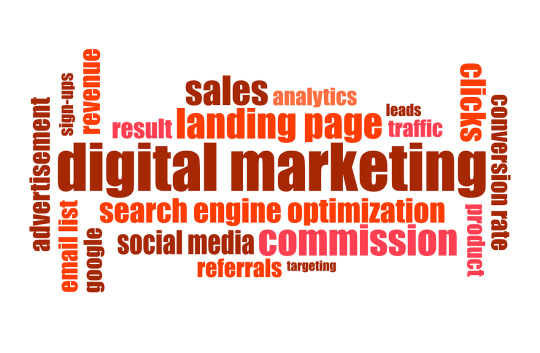
Unlocking the Future of Business: Your Ultimate Guide to Choosing the Right Digital Marketing Agency
Introduction
Digital marketing encompasses the use of online channels to promote products or services, reaching audiences through platforms like social media, search engines, email, and websites. It leverages various digital tools and strategies to engage with target demographics, drive traffic, and generate leads or sales. With its dynamic nature and vast reach, digital marketing has become essential for businesses aiming to thrive in the digital age. Let us begin to tell u about digital marketing agency.
To get advanced digital marketing services with 20% discount by clicking on this link

The Evolution of Digital Marketing Agency
Digital marketing agencies have evolved significantly since their inception, adapting to technological advancements and changing consumer behaviors. Initially focused on basic services like website design and email marketing, agencies now offer a comprehensive range of solutions. This includes social media management, search engine optimization (SEO), content marketing, pay-per-click (PPC) advertising, analytics, and more. The rise of data analytics and artificial intelligence has further transformed these agencies, enabling them to provide personalized, data-driven strategies. Additionally, the shift towards remote work and virtual collaboration has expanded their global reach, allowing them to serve clients across borders efficiently.
The Rise of Digital Media
The rise of digital media has revolutionized how information is consumed and shared. With the widespread adoption of smartphones, social media platforms, and streaming services, digital media has become ubiquitous. It offers instant access to news, entertainment, and communication, transcending geographical boundaries. The democratization of content creation has empowered individuals and businesses alike to produce and distribute content, fostering new forms of expression and engagement. Digital media’s influence continues to grow, reshaping industries and shaping cultural norms.
boost your business online presence
Adapting to Changing Consumer Behaviors
Digital marketing agencies aid businesses by understanding and leveraging consumer behavior online. They analyze data to identify target audiences, optimize campaigns for various platforms, and create engaging content tailored to each channel. By implementing strategies such as social media management, search engine optimization, and email marketing, agencies ensure brands remain visible and relevant in the digital landscape. Their expertise helps businesses adapt to evolving consumer preferences, ultimately driving engagement, loyalty, and sales.
What Makes a Top Digital Marketing Agency?
Strategic Approach
A top digital marketing agency exhibits a strategic mindset, aligning campaigns with client goals and target audience needs.
Expertise Across Channels
They possess deep knowledge and proficiency in various digital marketing channels, including social media, SEO, PPC, content marketing, and email marketing.
Data-Driven Decision-Making
Utilizing analytics tools, they make informed decisions based on data insights to optimize campaigns and maximize ROI.
Creativity and Innovation
They demonstrate creativity in content creation and campaign design, continuously innovating to capture audience attention and differentiate brands.
Transparent Communication
Clear and open communication ensures clients are informed about campaign performance, challenges, and opportunities.
Proven Track Record
A history of successful campaigns and satisfied clients showcases their ability to deliver results consistently.
Adaptability and Agility
They stay ahead of industry trends, adapting strategies quickly to keep pace with evolving consumer behaviors and technological advancements.
Expertise and Specialization
Having specialized skills in various aspects of digital marketing, including SEO, PPC, and social media, is crucial for several reasons:
Optimizing Performance
Each aspect of digital marketing requires specific techniques and strategies to achieve optimal performance. Specialized skills ensure that campaigns are effectively optimized to reach target audiences and deliver desired outcomes.
Maximizing ROI
By understanding the intricacies of SEO, PPC, and social media, marketers can maximize return on investment (ROI) by efficiently allocating resources and targeting the most relevant audiences.
Driving Traffic and Conversions
SEO expertise helps in improving website visibility and driving organic traffic, while PPC proficiency enables targeted advertising to drive immediate traffic and conversions. Social media skills facilitate engagement and brand awareness, leading to increased website traffic and conversions.
Staying Competitive
In the highly competitive digital landscape, having specialized skills sets businesses apart from competitors. Marketers who excel in SEO, PPC, and social media can implement advanced strategies to outperform competitors and capture market share.
Adapting to Algorithm Changes
Search engine algorithms and social media algorithms are constantly evolving. Specialized skills enable marketers to stay updated with algorithm changes and adapt their strategies accordingly to maintain or improve rankings and visibility.
Effective Campaign Management
Specialized skills ensure efficient campaign management across multiple channels. Marketers can leverage their expertise to create targeted campaigns, monitor performance metrics, and make data-driven optimizations to achieve campaign objectives.
Building Brand Authority
Strong SEO, PPC, and social media strategies contribute to building brand authority and credibility online. Marketers can establish brands as industry leaders by consistently producing high-quality content, engaging with audiences, and maintaining a strong online presence across various digital platforms.
A Results-Driven Approach
Agencies must prioritize measurable results and ROI for clients to demonstrate the effectiveness of their strategies. By tracking key performance indicators and delivering tangible outcomes, agencies provide clients with clear insights into the impact of their marketing efforts, fostering trust, accountability, and long-term partnerships.
Staying Ahead of the Curve
Top agencies stay updated with the latest trends and technologies by investing in continuous learning and development programs for their teams, attending industry conferences and workshops, collaborating with tech partners, and actively participating in online communities. They prioritize staying ahead of the curve to deliver innovative solutions and maintain a competitive edge.
How to Choose the Right Digital Marketing Agency
Define Your Goals
Clearly outline your business objectives and marketing goals to ensure alignment with the agency’s expertise and capabilities.
Assess Experience and Track Record
Review the agency’s portfolio and case studies to gauge their experience in your industry and their ability to deliver results.
Consider Specializations
Choose an agency that specializes in the specific services you need, whether it’s SEO, PPC, social media, or content marketing.
Evaluate Communication and Transparency
Ensure the agency maintains open communication channels, provides regular updates, and is transparent about their processes, strategies, and performance.
Request References and Reviews
Seek testimonials or references from past clients to gain insights into the agency’s professionalism, reliability, and client satisfaction levels.
Identifying Your Marketing Needs
Self-Assessment
Evaluate your current marketing efforts and identify areas that need improvement or expansion. Consider factors such as brand awareness, lead generation, customer engagement, and sales growth.
Define Objectives
Clearly outline your short-term and long-term marketing goals. Determine whether you aim to increase website traffic, boost conversions, expand your social media presence, or launch a new product or service.
Understand Target Audience
Analyze your target audience demographics, behaviors, and preferences. Determine which channels and messaging resonate most with your audience to tailor your marketing strategies accordingly.
Budget Considerations
Determine your budget allocation for marketing activities. Understand the potential ROI for each marketing channel and prioritize investments based on their ability to achieve your business goals effectively.
Measure Success Metrics

Conclusion
Partnering with the right digital marketing agency is crucial for achieving business objectives. Insights from top agencies emphasize strategic alignment, data-driven approaches, multi-channel expertise, and transparent communication. These factors ensure tailored strategies, measurable results, and efficient campaign management. By choosing the right agency, businesses can harness the power of digital marketing to increase brand visibility, drive engagement, and ultimately, achieve long-term success in the competitive online landscape.
#digital marketing agency#digital marketing#search engine optimization#seo#markeitng#business#business ideas#tumblr things#tumblr stuff#trending#tumblr
2 notes
·
View notes
Text
The Magic of Digital Marketing and Discovering Trending Job Roles!
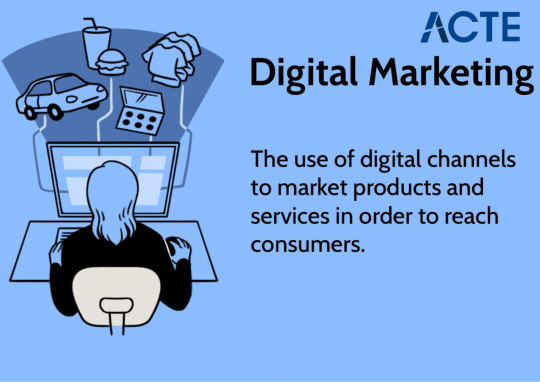
Digital marketing involves utilizing digital platforms and channels to promote products and services while engaging a specific target audience. This encompasses a range of strategies including search engine optimization (SEO), social media marketing, content creation, email campaigns, among others. The primary objective is to harness digital tools and tactics to connect with potential customers, fostering interactions, leads, and sales.
In the contemporary digital era, digital marketing has become indispensable for businesses seeking to flourish and maintain a competitive edge. By harnessing the capabilities of online platforms, enterprises can amplify brand recognition, augment website traffic, and enhance conversion rates. The precision of digital marketing facilitates the pinpoint targeting of audiences, real-time tracking of campaign efficacy, and data-centric decision-making to optimize marketing endeavors. By investing in digital marketing strategies, companies can effectively establish connections with their audience, cultivate lasting relationships, and articulate their unique value proposition.
Career Opportunities Following Completion of a Digital Marketing Course :
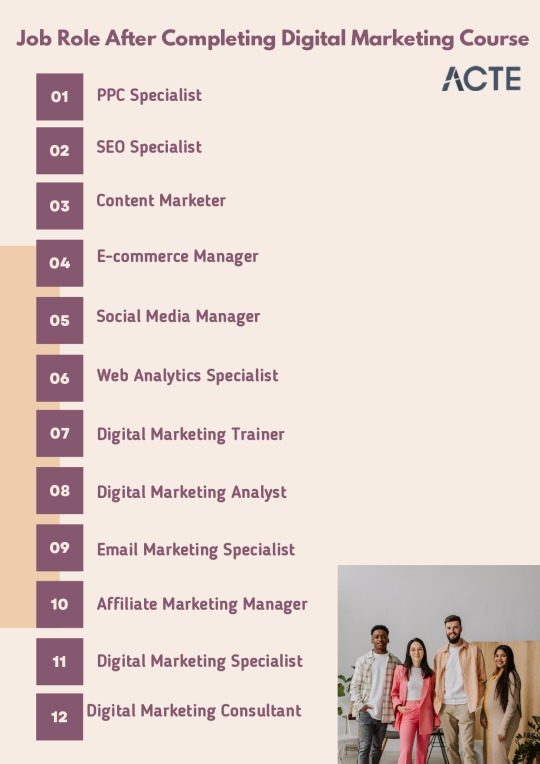
In the present digital landscape, the completion of a digital marketing course opens up a myriad of captivating professional avenues. The acquired skills and knowledge empower individuals to excel in diverse capacities within the realm of digital marketing. From orchestrating and overseeing digital marketing campaigns to scrutinizing data and fine-tuning strategies, here are several potential roles that await graduates of a digital marketing course.
Digital Marketing Specialist/Executive: In this role, you plan and run online marketing campaigns using various platforms. You use skills like social media marketing, email marketing, SEO, SEM, and content marketing to increase brand visibility and achieve good results.
Social Media Manager: As a social media manager, you create interesting and relevant content for social media. Your aim is to make posts that people like, engage them in conversations, and track the performance of posts. This helps increase brand recognition and build a loyal following.
Content Marketer: If you're good at storytelling and enjoy creating useful content, you could be a content marketer. You focus on making engaging blog posts, videos, images, and other types of content. Sharing this content attracts the right audience, potentially leading to sales.
SEO Specialist: An SEO specialist ensures that websites and content appear in search engine results. They find the best keywords, make website improvements, and continuously monitor performance.
PPC Specialist: A PPC specialist creates and manages online ads to attract people interested in the advertised products or services. They ensure that the ads are effective and reach the intended audience.
Email Marketing Specialist: In this role, you send appealing emails to encourage people to open, click, and potentially make purchases. You also analyse email performance and make improvements.
Inbound Marketing Manager: This role focuses on attracting new customers by creating valuable content, improving website visibility, and utilizing free marketing methods like social media.
Digital Marketing Analyst: A digital marketing analyst examines campaign data to determine what's effective and what needs improvement. They use this information to provide recommendations.
E-commerce Manager: Managing an online store involves ensuring smooth operations, optimizing product presentation, and driving online sales.
Digital Marketing Manager: This role oversees all digital marketing activities, including planning, team leadership, and performance monitoring.
Web Analytics Specialist: Web analytics specialists study website user behaviour using tools to enhance website performance.
Conversion Rate Optimization (CRO) Specialist: A CRO specialist ensures that website visitors take desired actions, such as purchasing or filling out forms. They analyse data and test strategies to enhance user experience.
Digital Marketing Consultant: Consultants offer advice to businesses to enhance their online marketing strategies, suggesting ideas for better results.
Affiliate Marketing Manager: This role involves collaborating with individuals who promote products. Managers provide promotional materials and ensure affiliates are effective.
Digital Marketing Trainer/Instructor: Trainers teach others about digital marketing, creating lessons and helping people learn effective online marketing techniques.
In conclusion, completing a digital marketing course opens doors to various roles in the digital marketing field. Whether you specialize in social media, content creation, SEO, PPC advertising, or other areas, the opportunities are vast. By combining your newfound skills with experience, you can pursue a successful career in the dynamic world of digital marketing.
#digital marketing#digital marketing tools#marketing#what is digital marketing#job role for digital marketing
11 notes
·
View notes
Text

The Role of Social Media in SEO: Leveraging Social Signals for Search Rankings
The synergy between social media and search engine optimization (SEO) plays a pivotal role in determining the online visibility and success of businesses. Let's delve into how social media influences SEO rankings and how you can leverage it to your advantage.
Social Signals: The Building Blocks of SEO Success
Social signals encompass likes, shares, comments, and overall engagement on various social media platforms. Search engines, like Google, consider these signals as indicators of a website's credibility, relevance, and authority. The more engagement your content receives on social media, the more likely it is to rank higher in search engine results pages (SERPs).
Enhancing Brand Visibility and Awareness
By maintaining an active presence on social media platforms, businesses can significantly enhance their brand visibility and awareness. Consistently sharing valuable content, interacting with followers, and participating in relevant conversations not only fosters a sense of community but also establishes trust and credibility among your target audience.
Driving Quality Traffic to Your Website
Social media serves as a powerful channel for driving quality traffic to your website. When you share compelling content that resonates with your audience, you encourage them to click through to your website to learn more. This influx of traffic sends positive signals to search engines, signaling the relevance and authority of your website.
Building High-Quality Backlinks
One of the most significant benefits of integrating social media into your SEO strategy is its potential to generate high-quality backlinks. When your content gets shared across social media platforms, it increases the likelihood of other websites linking back to your content. These backlinks are invaluable for improving your website's authority and credibility in the eyes of search engines.
Amplifying Content Reach and Engagement
Social media acts as a catalyst for amplifying the reach and engagement of your content. Through strategic use of hashtags, tagging relevant influencers, and leveraging user-generated content, you can extend the reach of your content to a broader audience. This increased engagement signals to search engines that your content is valuable and worthy of higher rankings.
Integrating Social Media into Your SEO Strategy
To harness the full potential of social media for SEO, it's essential to integrate it seamlessly into your overall digital marketing strategy. Develop a content calendar that aligns with your SEO goals, optimize your social media profiles with relevant keywords, and track key metrics to measure the effectiveness of your efforts. By treating social media as an integral part of your SEO strategy, you can unlock new opportunities for growth and success.
Conclusion
The role of social media in SEO cannot be overstated. By leveraging social signals, enhancing brand visibility, driving quality traffic, and building high-quality backlinks, businesses can propel their SEO efforts to new heights. Integrating search engine marketing services into your strategy amplifies content reach and engagement, acting as a catalyst for SEO success. Embrace the power of social media and watch your online presence soar.
#seo#social media management#social media management services#search engine optimization services#search engine marketing services
2 notes
·
View notes
Text
The Ultimate Marketing Model for Startups: Leveraging Influencer Marketing for Success
In the dynamic world of startups, crafting an effective marketing strategy is essential for driving growth, building brand awareness, and acquiring customers. While there are countless approaches to marketing, one strategy that has proven to be particularly impactful for startups is influencer marketing. In this blog, we'll explore a comprehensive marketing model tailored for startups, with a special focus on the role of influencer marketing in driving success.
1. Define Your Target Audience:
The foundation of any successful marketing strategy is a deep understanding of your target audience. Start by identifying the demographics, interests, and pain points of your ideal customers. Conduct market research, analyze competitor strategies, and gather insights to refine your audience personas.
2. Set Clear Goals and Objectives:
Establishing clear and measurable goals is crucial for guiding your marketing efforts. Whether it's increasing brand awareness, driving website traffic, or boosting sales, define specific objectives that align with your startup's overall business goals. Ensure that your goals are realistic, relevant, and time-bound.
3. Develop a Compelling Brand Story:
In today's crowded marketplace, storytelling is a powerful tool for capturing the attention and imagination of your audience. Craft a compelling brand narrative that communicates your startup's mission, values, and unique selling proposition. Your brand story should resonate with your target audience and differentiate your startup from competitors.
4. Build an Integrated Marketing Strategy:
An effective marketing strategy integrates various channels and tactics to reach and engage your audience across multiple touchpoints. Embrace a mix of digital marketing channels such as social media, content marketing, email marketing, and search engine optimization (SEO). Leverage each channel strategically to maximize your startup's visibility and impact.
5. Harness the Power of Influencer Marketing:
Influencer marketing has emerged as a cornerstone of modern marketing, especially for startups looking to establish credibility, reach new audiences, and drive conversions. Identify influencers whose values align with your brand and whose audience matches your target demographic. Collaborate with influencers to create authentic and engaging content that resonates with their followers.
Why Influencer Marketing Matters for Startups:
Access to Targeted Audiences: Influencers have built loyal followings around specific niches or topics, providing startups with access to highly targeted audiences that are already interested in relevant products or services.
Credibility and Trust: Influencers have a close and trusted relationship with their followers, making their recommendations more credible and impactful than traditional advertising.
Cost-Effectiveness: Influencer marketing can be a cost-effective alternative to traditional advertising channels, particularly for startups with limited marketing budgets. Many micro-influencers offer affordable rates while still delivering significant ROI.
Authenticity and Engagement: Influencers excel at creating authentic and engaging content that resonates with their audience, helping startups connect with consumers on a deeper level and drive meaningful engagement.
6. Measure and Iterate:
Regularly monitor and analyze the performance of your marketing efforts using key performance indicators (KPIs) such as website traffic, engagement metrics, conversion rates, and return on investment (ROI). Use data-driven insights to identify areas for improvement and optimize your marketing strategy over time.
In conclusion, building a successful marketing model for startups requires a strategic approach that encompasses audience research, goal setting, brand storytelling, integrated marketing tactics, and the strategic integration of influencer marketing. By leveraging the unique advantages of influencer partnerships, startups can effectively reach and engage their target audience, drive brand awareness, and accelerate growth in today's competitive landscape.
2 notes
·
View notes
Text
How can digital marketing help your business
Introduction:
In the dynamic landscape of the modern business world, digital marketing has emerged as a powerful tool that can significantly impact the success and growth of a business. Leveraging various online channels and platforms, digital marketing goes beyond traditional methods, offering businesses new and innovative ways to connect with their target audience, build brand awareness, and drive sales. In this comprehensive guide, we will explore the multifaceted ways in which digital marketing can benefit your business.
Global Reach and Targeted Audience:
One of the primary advantages of digital marketing is its ability to reach a global audience. Through channels like social media, search engines, and email marketing, businesses can extend their reach beyond geographical boundaries. Moreover, digital marketing allows for precise targeting, ensuring that your message reaches the right audience based on demographics, interests, and online behavior.
Cost-Effective Marketing:
Traditional advertising methods can be expensive and may not provide the same level of measurable results as digital marketing. With tools like pay-per-click (PPC) advertising and social media advertising, businesses can optimize their budget and allocate resources to the most effective channels. This cost-effectiveness is particularly beneficial for small and medium-sized enterprises looking to compete with larger counterparts.
Increased Brand Visibility and Awareness:
Building and maintaining a strong online presence is crucial in today's digital age. Digital marketing strategies such as search engine optimization (SEO) help businesses improve their visibility on search engines, making it easier for potential customers to discover them. Consistent and strategic digital marketing efforts contribute to enhanced brand awareness, making your business more recognizable and memorable.
Engagement and Interactivity:
Digital marketing allows for real-time interaction with the audience through various channels like social media, email, and live chat. Engaging content, interactive campaigns, and prompt responses to customer inquiries contribute to building strong relationships with your audience. This engagement fosters trust and loyalty, essential components for long-term business success.
Data-Driven Decision Making:
Unlike traditional marketing, digital marketing provides a wealth of data and analytics that can be used to measure the effectiveness of campaigns. By analyzing metrics such as website traffic, conversion rates, and social media engagement, businesses gain valuable insights into customer behavior. This data-driven approach enables businesses to make informed decisions and refine their strategies for better results.
Personalization and Customer Segmentation:
Digital marketing facilitates personalized communication with customers. Through data analysis, businesses can segment their audience based on preferences, purchase history, and behavior. Tailoring marketing messages and offers to specific segments enhances the relevance of your communication, increasing the likelihood of conversion and customer satisfaction.
Content Marketing for Authority Building:
Content marketing is a key component of digital marketing that focuses on creating and distributing valuable, relevant content to attract and engage a target audience. By establishing your business as an authority in your industry through high-quality content, you can gain the trust of potential customers and position yourself as a go-to resource in your field.
Social Media Marketing for Brand Building:
Social media platforms have become indispensable for businesses seeking to connect with their audience. Social media marketing allows businesses to showcase their personality, share updates, and interact with followers in a more informal and authentic way. A well-executed social media strategy can contribute significantly to brand building and customer loyalty.
E-commerce and Online Sales:
With the rise of online shopping, digital marketing plays a crucial role in driving e-commerce sales. Through platforms like Google Shopping and social media advertising, businesses can showcase products to a targeted audience, driving traffic to their online stores and increasing sales.
Adaptability and Agility:
The digital landscape is constantly evolving, and digital marketing allows businesses to adapt quickly to changes. Whether it's adjusting advertising budgets, refining targeting parameters, or adopting new technologies, digital marketing provides the flexibility needed to stay ahead in a fast-paced environment.
Conclusion:
In conclusion, the impact of
on business success is undeniable. From expanding global reach to fostering customer relationships, digital marketing offers a plethora of opportunities for businesses to thrive in the digital age. Embracing these strategies and staying abreast of the latest trends can position your business for sustained growth and competitiveness in the ever-evolving marketplace. As you navigate the digital marketing landscape, remember that a well-crafted and consistently executed digital marketing strategy can be a game-changer for your business
2 notes
·
View notes